Activists have gathered in Washington, DC to demand that Congress and President Biden take action to legalize marijuana federally and free people still incarcerated for it. As the 2024 presidential election campaign heats up, they’re reminding Biden of his past campaign promises to decriminalize marijuana and commit to racial justice.
“We had about 200 individuals come with us,” Sarah Gersten, executive director of the Last Prisoner Project and one of the main organizers for the week of action, told Filter. The events were planned to coincide with 4/20, the unofficial cannabis holiday.
“This is the moment that we need to not settle and keep pushing for the reforms we need.”
“I’ve been in cannabis advocacy for a decade, and everyone said this is the first time we’ve seen this big and broad a coalition of individuals come together to push for these priorities,” Gersten added. “This is the moment that we need to not settle and keep pushing for the reforms we need in this movement.”
It started with a press conference outside the Capitol on April 17, where groups like the Last Prisoner Project and Drug Policy Alliance (DPA) were joined by elected officials, like Senator Ron Wyden (D-OR) and Representatives Earl Blumenauer (D-OR) and Ayanna Pressley (D-MA), to discuss legalization efforts in Congress.
Over 30 different organizations joined in supporting the action, including Students for Sensible Drug Policy, NORML, the Law Enforcement Action Partnership (LEAP), the United Food and Commercial Workers union, and the National Association of Criminal Defense Lawyers.
“Let’s make it plain, cannabis should be legalized,” Rep. Pressley said at the press conference. “Criminalizing marijuana is part of the failed War on Drugs that has sustained a mass incarceration crisis that has ravaged our communities, destabilized our families and inflicted generational trauma. When we’re talking about the War on Drugs, cannabis justice and the shameful crisis of mass incarceration, there are no excuses for the problem. No excuses, but there is a solution—and clemency is a part of that solution.”
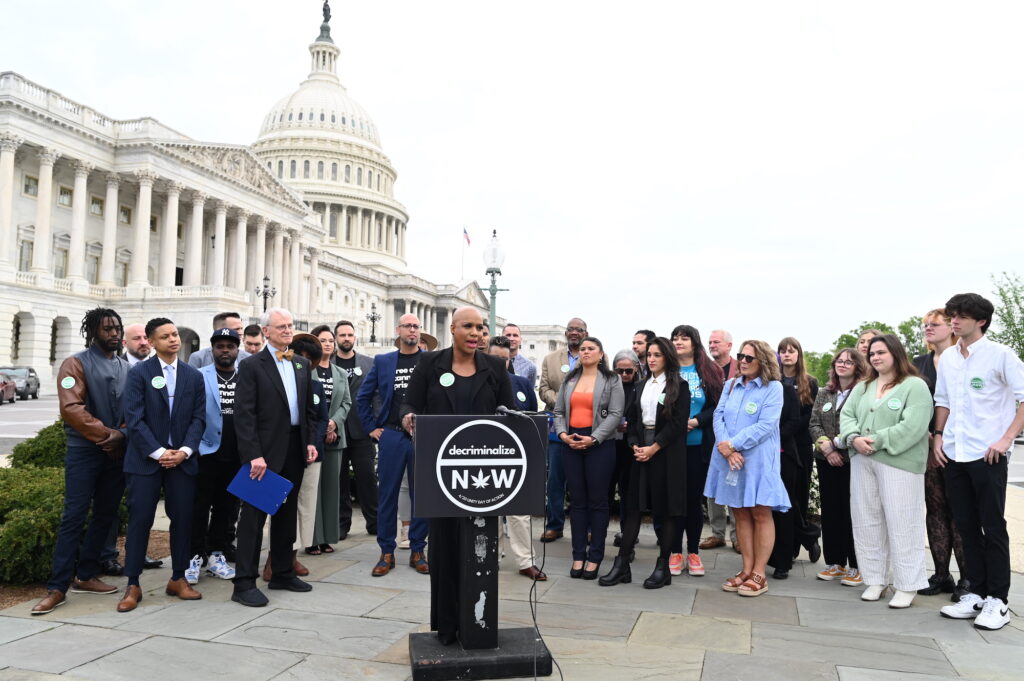
“Forces are aligned to be able to end this failed War on Drugs and mobilize unprecedented support across the country,” Rep. Blumenauer said. “And, frankly, the Biden administration has been doing a little realignment, which I welcome. But it’s time to not just realign but get it done. President Biden, if I was interested in mobilizing young people—if I was interested in energizing them—this is a no-brainer.”
On April 18, activists broke into teams for a day of lobbying, meeting with individual congressmembers to discuss their marijuana justice agenda. The Last Prisoner Project described the objective as “public pressure on Congress and the President to take action to fully legalize cannabis, free those still in prison, and provide retroactive relief.”
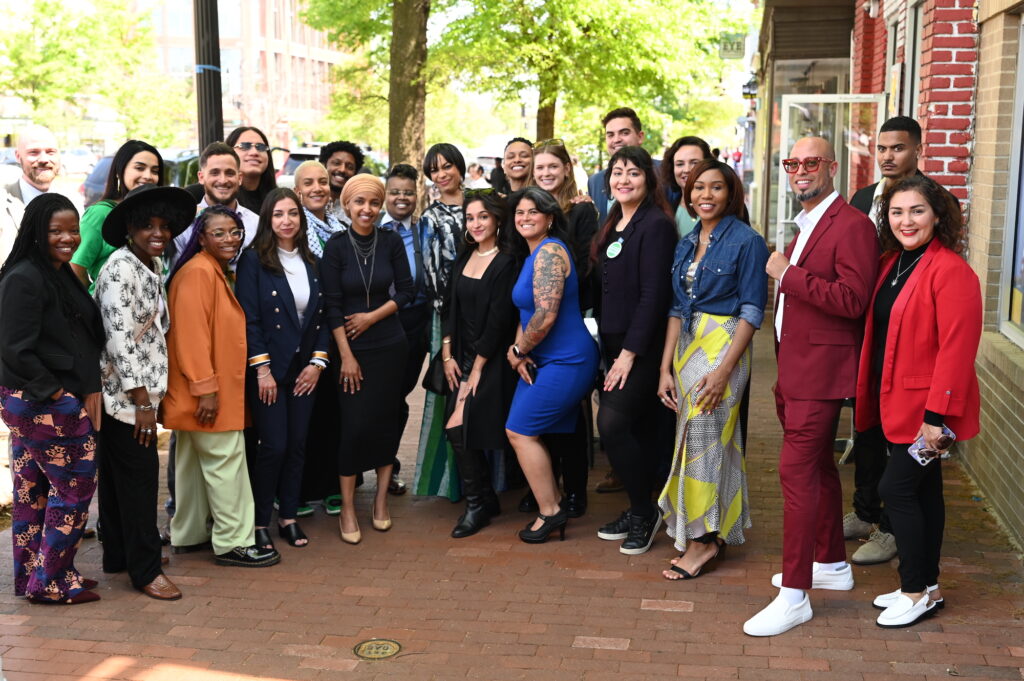
That evening, activists reconvened for a vigil outside the White House to call on Biden to free anyone incarcerated on a marijuana charge. On April 19 and 20, members of the group are engaging at the National Cannabis Festival, an annual music and arts event.
“When they’re face to face with our constituents, who are telling their stories of being incarcerated for the same thing others are now profiting off of, you can see something click.”
Gersten explained how activists targeted lawmakers across the political spectrum. They met with politicians she described as some of the movement’s “champions,” like Sens. Chuck Schumer (D-NY), Corey Booker (D-NJ) and John Fetterman (D-PA), while also focusing on Republicans who don’t yet publicly support reform.
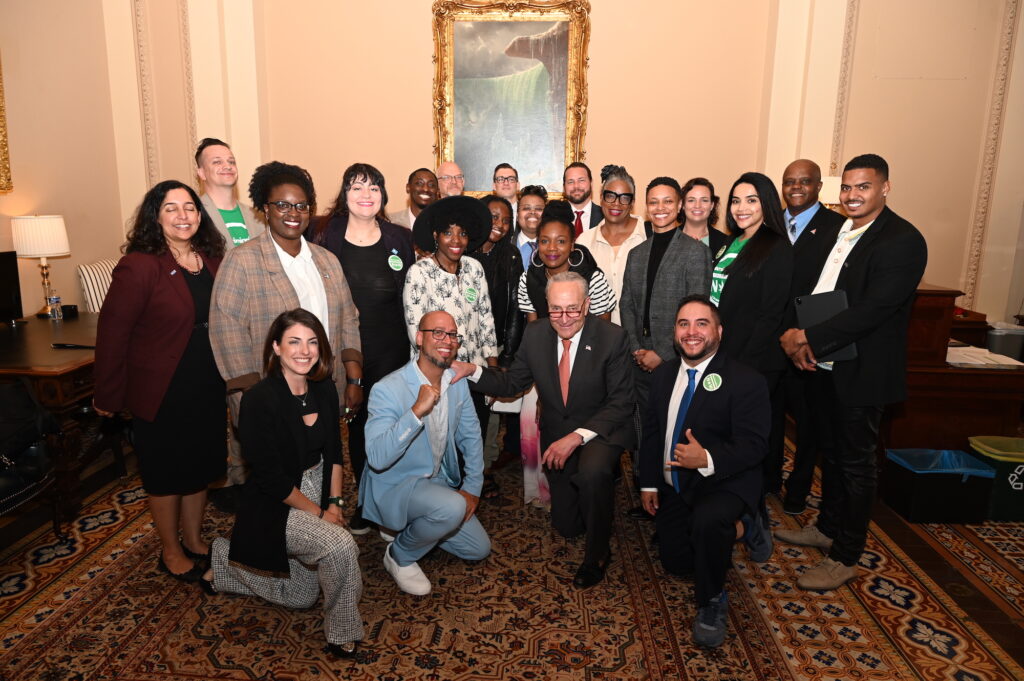
“At Last Prisoner Project, we have a lot of our constituents here, folks that have themselves been incarcerated for cannabis for their family members,” she said. “And the vast majority of them come from Southern, deep red states. They really wanted to go to their electeds’ offices to say, we’ve got to do something about this issue. Some that come to mind are Sen. Lindsey Graham, and [lawmakers from] Louisiana and Alabama. When they’re face to face with our constituents, who are telling their stories of being incarcerated for the same thing others are now profiting off of, you can see something click.”
Cannabis reform advocates are frustrated by inadequate action at the federal level. Gersten told Filter she estimates there are about 3,000-4,000 people still incarcerated in federal prisons for marijuana charges—people Biden could free with the stroke of a pen.
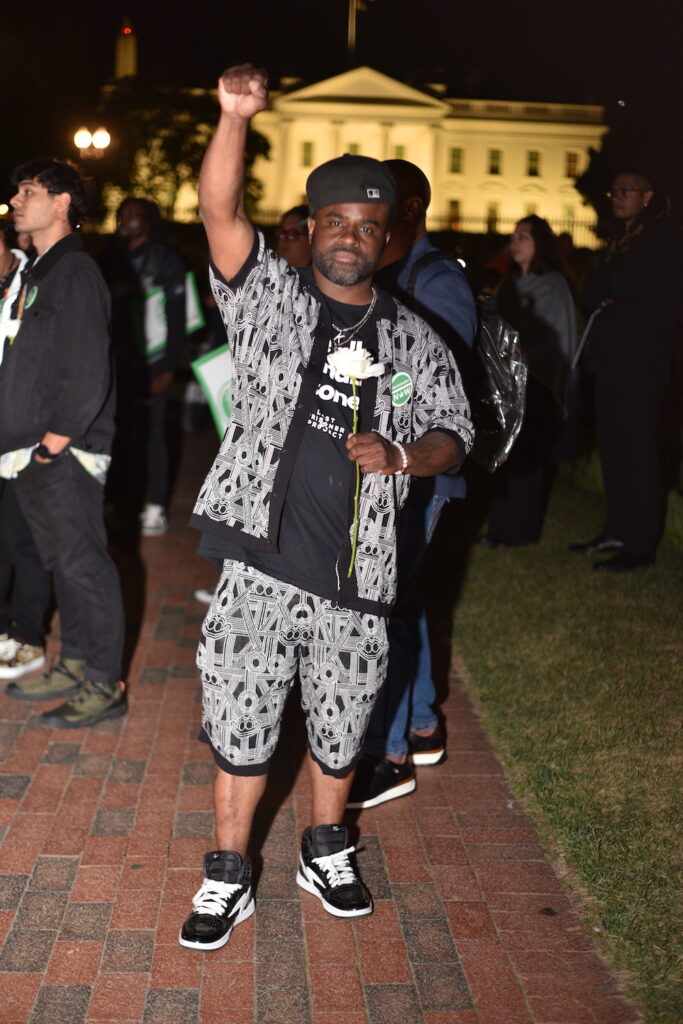
Despite the Biden administration’s high-profile move, in October 2022, to issue federal pardons for simple marijuana possession, none have resulted in anyone actually being freed, largely because very few people are in federal custody for simple possession. And for those who received pardons, it doesn’t clear or expunge their record, because there is no federal statute on expungement. That means employers, schools, or banks can still view their old marijuana charges. The only solution would be for Congress to step in, and pass a bill to guarantee expungement for federal marijuana records.
To date, the Justice Department has reviewed and granted 195 pardon certificates. Biden was proud enough of this to give it a shout-out in his last State of the Union address, though he mislabeled pardons as “expungements.”
Progress is slow despite wide popular support for justice for people with marijuana charges. A 2022 Data for Progress poll showed 72 percent of voters supporting federal marijuana pardons, and a 2020 Bully Pulpit Interactive poll showed 84 percent supporting the release of people from prison for charges that were decriminalized after their conviction.
When it comes to legalization, a March Pew Research Poll found that nine in 10 US adults support legalizing cannabis for either adult use or medical purposes.
When he announced the pardons, Biden also announced that he was directing federal agencies to review the scheduling status of marijuana. It’s currently Schedule I, the most restrictive category, a status it shares with heroin. But here, too, things have moved at a glacial pace.
Kamala Harris stated recently that the DEA should act as “as quickly as possible,” calling it is “absurd” and “patently unfair” for marijuana to remain in Schedule I.
In August 2023, the federal health and human services department recommended moving cannabis to Schedule III, a less restrictive but still controlled category. The Drug Enforcement Administration (DEA) must make a final decision, but still hasn’t done so.
At an April 15 press conference, White House Press Secretary Karine Jean-Pierre told reporters that any questions about scheduling should be directed to the Justice Department. But Vice President Kamala Harris has been more forthright—stating recently that the DEA should act as “as quickly as possible,” and calling it is “absurd” and “patently unfair” for marijuana to remain in Schedule I.
Though this is further than any previous administration has been willing to go on marijuana reform, it shouldn’t have taken this long.
Much of activists’ focus at the moment is on pressuring President Biden to take whatever action he can by executive order to address marijuana-related injustice. But congressmembers have also made efforts to advance reform through the legislative process.
“It’s an issue that can motivate and energize Biden’s base. Young voters, voters of color, folks he needs to win the election.”
The House has twice passed the Marijuana Opportunity Reinvestment and Expungement (MORE) Act, a legalization bill, under previous Democratic majorities. Senate Democrats, led by Sen. Chuck Schumer (NY) have introduced their own Cannabis Administration and Opportunity Act (CAOA).
But with Republicans taking control of the House in 2022, legalization is for now impossible there, while it also hasn’t moved in the Senate, with enough Republicans to filibuster it (and possibly even some Democratic opponents). So for the time being, any progress will have to come from Biden’s executive order pen.
Cannabis activists hope to convince Biden that accelarating reforms could be a winning issue as he faces off against Donald Trump and other challengers in his reelection bid.
“My big hope is that by galvanizing all these different organizations and individuals, that we can really showcase to the president that this is an issue the public cares about,” Gersten said. “It’s one that can motivate and energize his base. Young voters, voters of color, folks he needs to win the election in November.”
All photographs courtesy of the Last Prisoner Project
The Influence Foundation, which operates Filter, was formerly fiscally sponsored by LEAP, and previously received a restricted grant from DPA. Filter‘s Editorial Independence Policy applies.
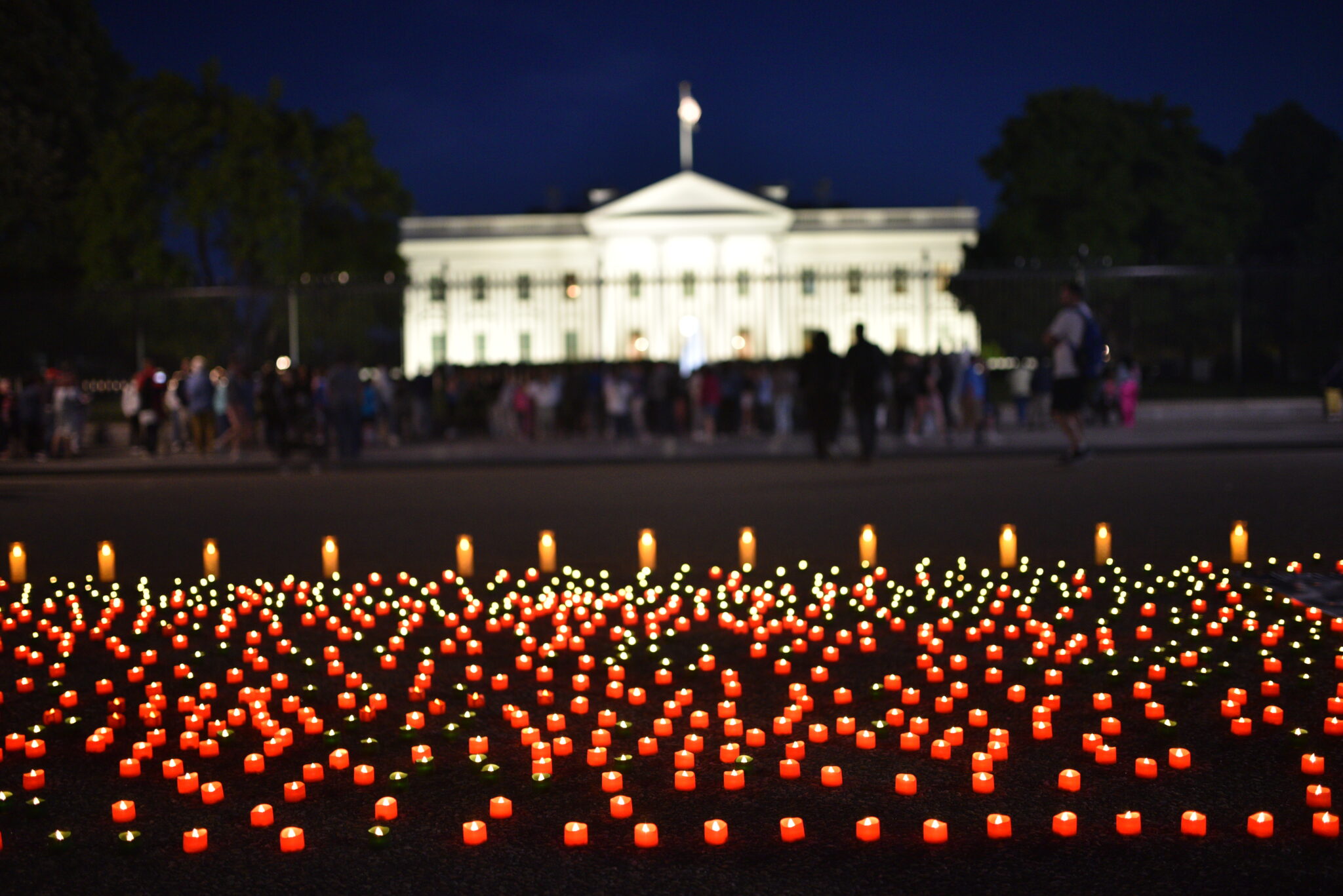




Show Comments